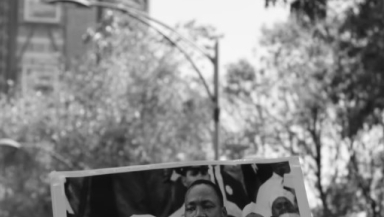
The event was scheduled for 28 August 1963: a mile-long march from the Washington Monument to the Lincoln Memorial, built in honour of the president who had signed the Emancipation Proclamation a century earlier. The march called for the desegregation of public accommodation and public schools, the redress of violations of constitutional rights, and an expansive federal programme to train employees.
Its demands were just and it produced a bigger turnout than expected. An estimated 250,000 people arrived at what would become the largest event in the history of America. It was graced by many celebrities, including Bob Dylan and the soul singer, Mahalia Jackson, and the significance of the event was not lost on Martin Luther King Jr, whose preparation had been meticulous.
It is the extemporaneous section of the speech that history remembers. Yet the inclusion of the 'I have a dream' passage was a spontaneous addition, which may or may not have been prompted by Mahalia Jackson. She, history reminds us, had heard him employ this refrain at a demonstration in Detroit a few months earlier. Jackson and King had a good relationship, he often turning to her when in need of a musical uplift. Now standing next to him, when he began struggling with his prepared text, she shouted: "Tell 'em about the dream Martin."
And so, King kicked off and took the listening crowd to church, as they say. He began slowly, powerful pauses combining with clear and exaggerated diction. Indeed, precise enunciation are hallmarks of this speech, and in his first minute King utters only 77 words.
Among the most ubiquitous and possibly misunderstood of these were:
"In a sense we have come to our nation's capital to cash a check. When the architects of our Republic wrote the magnificent words of the Constitution and the Declaration of Independence, they were signing a promissory note to which every American was to fall heir. The note was a promise that all men, yes black and white would be guaranteed the unalienable Rights of Life, Liberty and the pursuit of Happiness ... it is obvious today that America has defaulted on this promissory note, insofar as the citizens of colour are concerned. Instead of honouring this sacred obligation, America has given the Negro people a bad check, a check which has come back marked insufficient funds."
For good reasons, reparatory justice was an important theme in King's vision. The history of African Americans had been steeped in enslavement. The loss of life, dignity, land and family had followed the enslaved for centuries, each life stolen by their oppressors. Even the new American laws, supposedly providing a semblance of parity for African Americans were disappointing because of their inability to create a just America for African Americans.
King's demand for reparations was very clear: "In a sense we have come to our nation's capital to cash a check." It was a metaphor that started in the jail cells of Alabama and ended in a New York bank vault. You see, many young black people were arrested during the Birmingham Marches and the movement quickly needed to generate large sums of money, leading to the release of the young men.
King made the point that American banks held trillions of dollars, amounts far exceeding the bail money demanded by the courts. It was locked in American vaults and ought to be released to compensate the millions of African Americans who had attempted to live their lives under the curse of enslavement, and whose economic opportunities had been drastically curtailed because of history's cruel past.
King was adamant. Reparations, alongside other concrete expressions of justice, needed to happen now. And remedying the inherited inequalities would ultimately only happen through reparations. Such urgency was not at all surprising because for King, reparations would entail America, blighted by exploitation, taking its own history seriously. It would be a concrete acknowledgement of the effects that harmful policies had had on black bodies. Reparations was a way of making the country whole and providing African Americans with the opportunities to become some bodies.
Demanding that America should repair its damage was a bold gesture. It certainly presented a powerful challenge to the structures that linked privilege with whiteness. It forcibly challenged the inheritance of European colonialism, the Atlantic Slave Trade, and the heritage of British colonial power. King's 'I have a dream' speech put all these issues and more firmly on America's agenda.
The American elite have done everything possible to conceal this potentially dangerous part of the 'I have a dream' speech, presenting King as a gradualist and diplomat, not a revolutionary committed to reparations. And many faith communities, including churches have been silent on this most pressing of issues.
Yet the reparatory justice part of King's speech forcibly reminds us of the untold damage colonial powers have inflicted on the Caribbean and parts of Africa, and recognises that reparation has the capacity to bring around restoration and redemption for the brutalised.
Churches and church organisations, if really committed to racial justice issues, need to pick this theme up by theologising the significance of it and ensuring it is a priority on our agendas.
Wale Hudson-Roberts is Justice Enabler at the Baptist Union of Great Britain and the pastor of John Bunyan Baptist Church in Cowley, Oxford.













